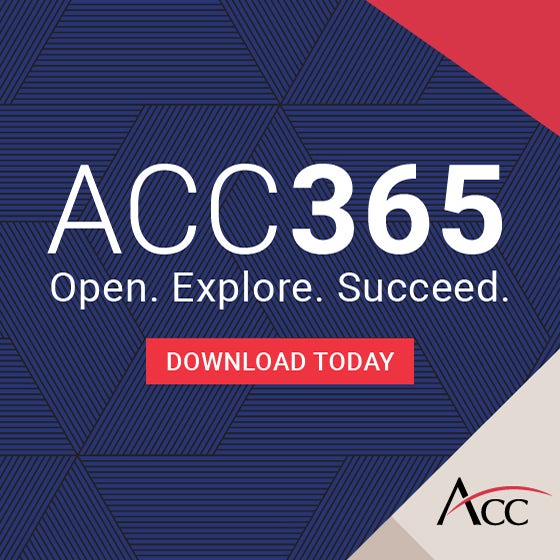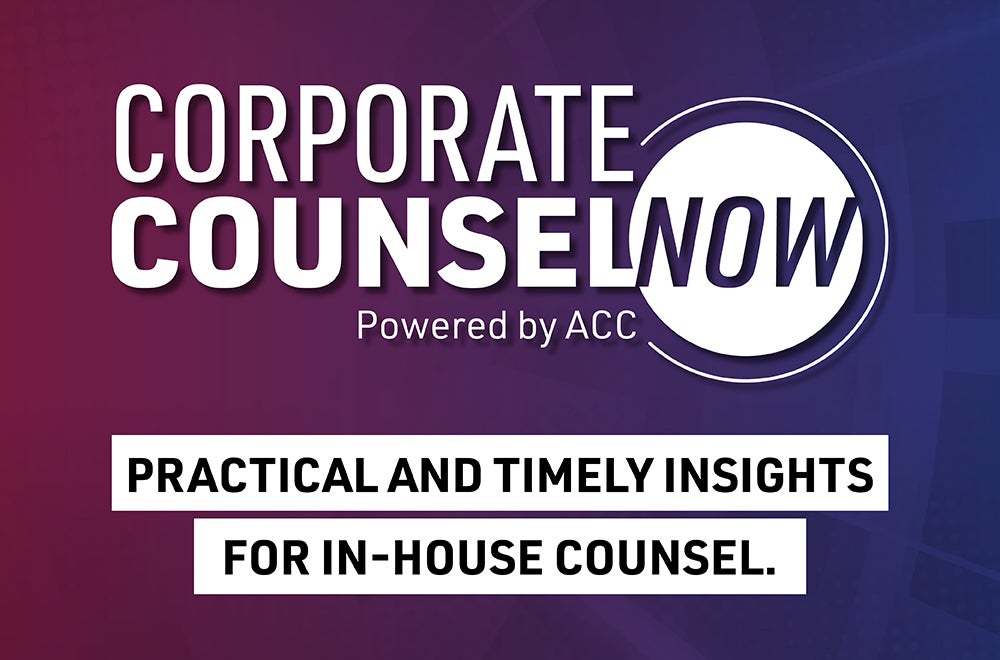ACC Advocacy Update - Whistleblowing
On Sept. 17, 2019 ACC submitted comments to the Australian Securities and Investments Commission (ASIC) in response to their Consultation paper 321 and Draft Guidance on new requirements regarding organizational whistleblower provisions. In its comments:
- ACC praised ASIC for expressing a preference for internal reporting in whistleblower programs;
- ACC went on to argue that good practice guidance on roles and responsibilities under a whistleblower policy are overly prescriptive and ASIC should revise the section to be more principles-based; and
- Finally, ACC requested further guidance for in-house legal counsel (IHLC) who find themselves in the position of a whistleblower. With respect to this third issue, ACC listed specific Issues facing IHLC who may themselves become whistleblowers.
IHLC who may become whistleblowers
ACC submitted that ASIC should give consideration to the particular circumstances of IHLC. IHLC’s have a professional duty to give independent legal advice to the organisations they serve. Their advice will usually be subject to legal professional privilege. Senior IHLC’s may also oversee compliance functions and, with them, whistleblower programs. They may receive reports from external whistle-blower services, and, on occasion as trusted advisers, they may individually receive information from whistleblowers directly.
There are open issues as to whether an IHLC will breach their duties of client confidentiality, client fidelity and cause an unauthorised waiver of the client’s LPP if they become an external whistleblower. The intent of the Act is probably that IHLC should be immunised from any detriment, retaliation or adverse professional consequence regarding a protected disclosure, but this is not explicit or beyond doubt either under the Act or relevant professional conduct rules. For example, the answer differs in different US jurisdictions such as New York and California. In one an IHLC will be struck off for making a statutorily permitted disclosure, in the other they won’t. Injunctions can issue in the US regarding the disclosure of corporate documents by whistleblowing IHLC, especially LPP information. These issues are neither simple nor trivial. The only solution to them, given the current law, must be legislative.
Consider then the position of an in-house counsel coming upon a legal non-compliance in the course of their employment. Currently the in-house counsel would be motivated by their legal duties to their employer and the Court to advise their organisation of: the issue (confidentially and protected by legal professional privilege); the steps necessary to ensure that the non-compliance is notified, escalated, and rectified as required by policy and law; how internal policies, practices, procedures and controls might be updated, reinforced, relaunched etc to avoid recurrence; and what action could be taken in relation to the counselling, discipline or dismissal of involved staff in accordance with law, i.e. after being afforded procedural fairness and complying with any applicable industrial instrument.
Failure to advise in these regards (and escalate within the corporation if appropriate) would leave the in-house counsel at risk of action for breach of their legal duties and/or for professional misconduct and discipline, including possible exclusion from the practice of law potentially indefinitely. Should the employer fail to agree to rectify the breaches or comply with the law and the IHLC wanted to disclose those breaches under the whistleblower provisions, however, the IHLC could end up in the conflicted position of disclosing the corporate breaches, but by doing so, potentially breaching their employment and/or professional duties of confidentiality, trust and fidelity to client, and waiving the client’s legal professional privilege. There could be legal and professional consequences to these actions. Specific guidance protection for IHLC is required in this situation.
Additionally, in such circumstances, an IHLC should be entitled to avail themselves of an independent ‘ethical advice service’, free of charge. Similarly, an IHLC should be able to avail themselves of independent legal advice, paid for by the company (their employer).

